Results
-
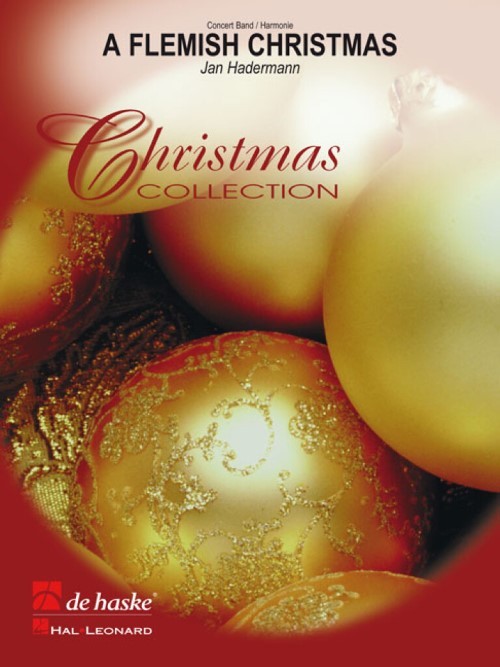 £104.99
£104.99A Flemish Christmas (Concert Band - Score and Parts) - Hadermann, Jan
In A Flemish Christmas, Jan Hadermann tells the Christmas story by means of four Old Flemish Christmas Songs. Mary is chosen to bring Jesus Christ, the son of God, into the world: Het was een maged uitverkoren ('She was a virgin chosen'). On the occasion of a census, Mary, who is with child, and Joseph, her husband to be, travel from Nazareth to Bethlehem, where Jesus will be born in a humble stable: Maria die zoude naar Bethlehem gaan (Mary would go to Bethlehem'). O kerstnacht, schoner dan de dagen ('Oh Christmas Night, more beautiful than the days') is a stately chorale that sings the praises of Jesus' birth. Three wise men from the East, Caspar, Melchior and Balthazar, follow a bright star in the sky, which leads them to Bethlehem. There, they worship the new-born King, and offer him gold, frankincense and myrrh: Wij komen van Oosten (We've come from the East'). This musical Christmas story ends with a festive repeat of the third movement, the stately chorale.Duration: 6:30
Estimated dispatch 7-14 working days
-
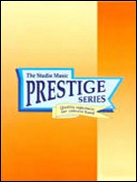 £21.95
£21.95Terra Australis (Concert Band - Score only) - Ellerby, Martin
In 2005 The Royal Marines Band Service commissioned Martin Ellerby for a Wind Band transcription of Terra Australis. Originally commissioned by the YBS Band, in consultation with their professional conductor Professor David King, for their 2005 tour of Australia, the composer has constructed this single-movement work by using three elements of Australian life. A dramatic illusion of the country's natural wonders and landscape, the spirit of Captain Cook's voyage in Endeavour and finally a salute to Australia's fallen in overseas wars.Duration: 11:30
Estimated dispatch 7-14 working days
-
 £106.95
£106.95Terra Australis (Concert Band - Score and Parts) - Ellerby, Martin
In 2005 The Royal Marines Band Service commissioned Martin Ellerby for a Wind Band transcription of Terra Australis. Originally commissioned by the YBS Band, in consultation with their professional conductor Professor David King, for their 2005 tour of Australia, the composer has constructed this single-movement work by using three elements of Australian life. A dramatic illusion of the country's natural wonders and landscape, the spirit of Captain Cook's voyage in Endeavour and finally a salute to Australia's fallen in overseas wars.Duration: 11:30
Estimated dispatch 7-14 working days
-
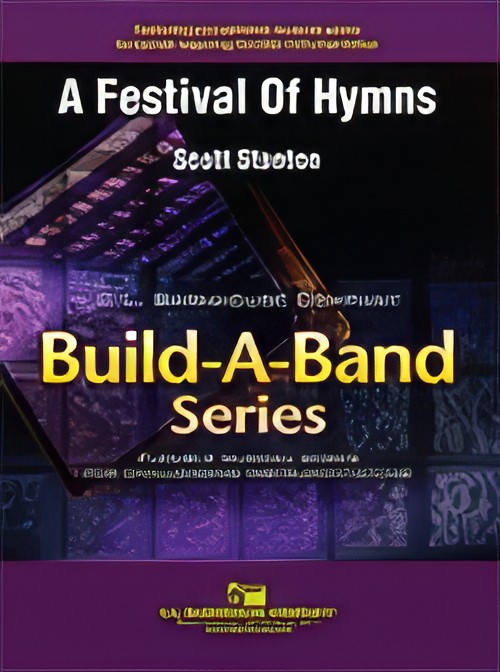 £60.00
£60.00A Festival of Hymns (Flexible Ensemble - Score and Parts) - Stanton, Scott
Scott Stanton's setting of three popular hymns, Praise To The Lord, Be Thou My Vision, and All Creatures of Our God and King is an outstanding choice for church or private school groups with limited instrumentations. From the innovative Build-A-Band Series, A Festival of Hymns is playable with almost any instrumentation as long as the four main parts are covered and optional parts for Mallets, Guitar, Keyboards, Strings, and Percussion are also included which can make the composition sound even more impressive.Duration: 3.45
Estimated dispatch 7-14 working days
-
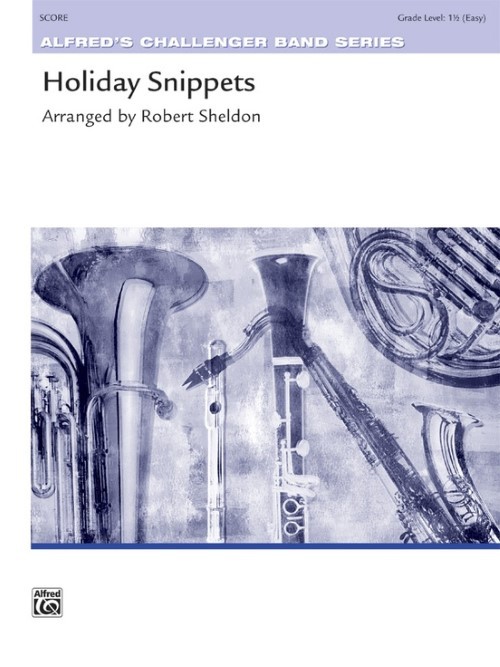 £46.95
£46.95Holiday Snippets (Concert Band - Score and Parts) - Sheldon, Robert
This delightful Christmas medley includes updated yet very playable settings of "The First Noel," "Good King Wenceslas" and "The Wassail Song," all linked together with bits and pieces of "Hark the Herald Angels Sing."Duration: 2.15
Estimated dispatch 7-14 working days
-
 £420.99
£420.99Four Earth Songs (Concert Band - Score and Parts) - Putz, Marco
The hymn Nun ruhen alle Wlder (Now All Forests Rest), arranged by J.S. Bach (No. 6, So sei nun, Seele, deine, from Cantata BWV 13), is a guiding light throughout this four-movement composition. Pu?tz wrote this work as a musical outcry against the wilful, profit-driven destruction of our environment. When Bach used the word "ruhen" (to rest) over 350 years ago, it probably had a different nuance from the meaning it has today. At the beginning of the 21st century - the so-called age of progress - "nun ruhen alle Wlder" should mean "now all forests die" . Massive industrialization and globalization, coupled with pure greed, corruption, political scandals, an ever-widening gap between the rich and poor, and other such senseless human actions, are pushing our blue planet closer and closer to the point of no return. This work is not intended to be a ranting accusation. It should remind us of the beauty and harmony that can exist all around us in nature, if we take care of it. Pu?tz hopes that this will, one day, help put a greater emphasis on humanity's survival, and coexistence with nature rather than the exploitation described earlier. All four texts were created by Australian poet Graeme King, whose works were discovered by Pu?tz, by chance on the internet. Pu?tz was especially captivated by King's clarity, and intrigued by the possibilities of adapting and melding the strong rhythmical structure of King's writing with his own musical language. The four movements are as follows: 1. Tears of Nature 2. Grrrevolution 3. Stand up! 4. Tomorrow The world premire of Four Earth Songs took place on 7 July 2009 at the 14th WASBE-Conference in Cincinnati (USA). This work is dedicated in friendship to Jouke Hoekstra, conductor, and the Frysk Fanfare Orkest (the Frisian Fanfare-Orchestra).Duration: 27:30
Estimated dispatch 7-14 working days
-
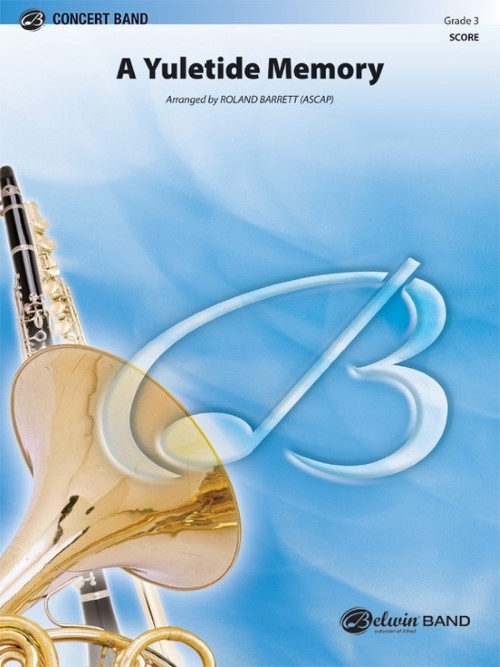 £66.95
£66.95A Yuletide Memory (Concert Band - Score and Parts) - Barrett, Roland
This festive medley of Yuletide classics ("Angels From The Realms Of Glory," "Good King Wenceslas," "Angels We Have Heard On High," "While Shepherds Watched Their Flocks By Night," "Silent Night," and "Joy To The World") reflects the sounds, sights, and spirit of the season: the excitement of eager children as they anticipate Christmas morning, the joy of gathering with family and friends, and the peaceful serenity of a quiet Christmas Eve. A most musical collection of cherished festive tunes certain to brighten your Christmas concert and boost everyone's spirit at this very special time of the year.Duration: 3.45
Estimated dispatch 7-14 working days
-
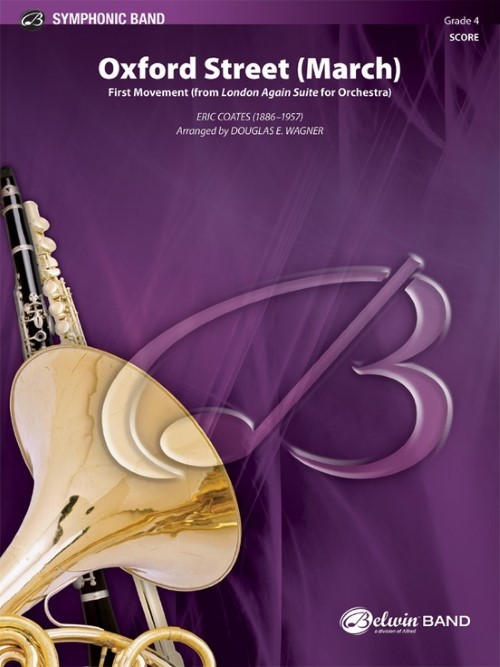 £66.95
£66.95Oxford Street (Concert Band - Score and Parts) - Coates, Eric - Wagner, Douglas E.
This first-ever transcription of the opening "march" takes the listener to the hustle and bustle of London's west-end shopping district. Dubbed the "uncrowned king of light music," Coates' instantly recognizable scoring in a march-style is a certain winner for Douglas Wagner's new concert band setting. Full of energy, Oxford Street (March) will be a cherished addition to any program.
Estimated dispatch 7-14 working days
-
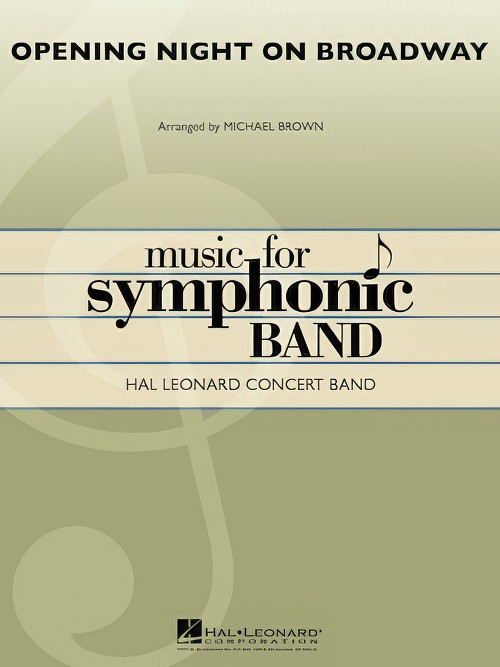 £79.99
£79.99Opening Night on Broadway (Concert Band - Score and Parts) - Brown, Michael
Here is a dynamic collection of future classics in a sparkling and entertaining medley from Michael Brown.Includes:Springtime for Hitler (from The Producers)The Avenue Q ThemeAlways Look on the Bright Side of Life (from Spamalot)For Good (from Wicked)Circle of Life (from The Lion King)
Estimated dispatch 7-14 working days
-
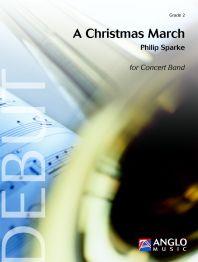 £72.99
£72.99A Christmas March (Concert Band - Score and Parts) - Sparke, Philip
A Christmas March was written to provide the young band something up-beat with which to open or close a Christmas or holiday concert. The main theme of the march is original, but many short references to well-known Christmas tunes appear in obvious and not-so-obvious places. These include Adeste Fidelis, Deck the Halls, Good King Wenceslas and Jingle Bells. God Rest Ye Merry, Gentlemen forms the march's trio section. A perfect piece for any Christmas concert.Duration: 2:00
Estimated dispatch 7-14 working days
